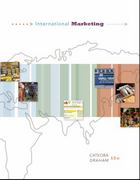Question
1.2 Suppose that due to a scaling down of oil production, the resource fiscal capacity for Alberta in 2012-13 became 80% of the original estimate
1.2 Suppose that due to a scaling down of oil production, the resource fiscal capacity for Alberta in 2012-13 became 80% of the original estimate (0.8 $11,528,572), while Ontario's non-resource fiscal capacity for 2012-13 increased to 130% of the original estimate (1.3 $100,310,827). Assume the fiscal capacity for other provinces is unchanged. What happens to the required aggregate equalization payments? Which province benefits and which province loses from this adjustment in terms of the Equalization entitlement amount?
1.3 Wulong Gu and Beatrix Lee (2013), in a Statistics Canada research paper titled "Productivity and Economic Growth in the Canadian Provinces, 1997 to 2010", found that the aggregate output and productivity growth in Canada can be traced to two industries: manufacturing in central Canada; and mining and oil and gas extraction in Alberta. From 1997 to 2000, Ontario was the main source of growth in Canada. However, between 2000 and 2010, growth in Ontario was among the slowest of the ten provinces and the oil and gas industry in Alberta was leading the economy. To address the challenge of managing the provincial government budget in Alberta, from the fiscal federalism perspective, should the federal government change the Equalization formula or other transfers? Please provide arguments using a list of bullet points,
Step by Step Solution
There are 3 Steps involved in it
Step: 1

Get Instant Access to Expert-Tailored Solutions
See step-by-step solutions with expert insights and AI powered tools for academic success
Step: 2

Step: 3

Ace Your Homework with AI
Get the answers you need in no time with our AI-driven, step-by-step assistance
Get Started


